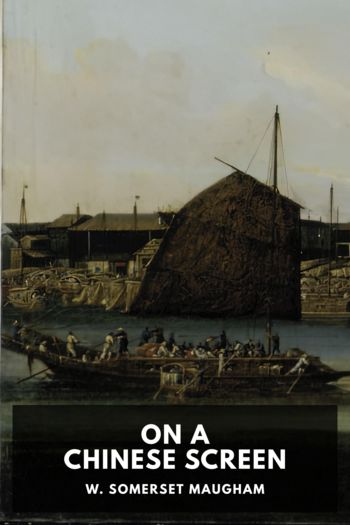Of Human Bondage by W. Somerset Maugham (classic english novels .TXT) 📕

- Author: W. Somerset Maugham
Book online «Of Human Bondage by W. Somerset Maugham (classic english novels .TXT) 📕». Author W. Somerset Maugham
“Hulloa, Carey, what have you done with your foot?”
“Oh, it’s all right now,” he would answer casually, as though it were the most natural thing in the world.
He would be able to play football. His heart leaped as he saw himself running, running, faster than any of the other boys. At the end of the Easter term there were the sports, and he would be able to go in for the races; he rather fancied himself over the hurdles. It would be splendid to be like everyone else, not to be stared at curiously by new boys who did not know about his deformity, nor at the baths in summer to need incredible precautions, while he was undressing, before he could hide his foot in the water.
He prayed with all the power of his soul. No doubts assailed him. He was confident in the word of God. And the night before he was to go back to school he went up to bed tremulous with excitement. There was snow on the ground, and Aunt Louisa had allowed herself the unaccustomed luxury of a fire in her bedroom; but in Philip’s little room it was so cold that his fingers were numb, and he had great difficulty in undoing his collar. His teeth chattered. The idea came to him that he must do something more than usual to attract the attention of God, and he turned back the rug which was in front of his bed so that he could kneel on the bare boards; and then it struck him that his nightshirt was a softness that might displease his Maker, so he took it off and said his prayers naked. When he got into bed he was so cold that for some time he could not sleep, but when he did, it was so soundly that Mary Ann had to shake him when she brought in his hot water next morning. She talked to him while she drew the curtains, but he did not answer; he had remembered at once that this was the morning for the miracle. His heart was filled with joy and gratitude. His first instinct was to put down his hand and feel the foot which was whole now, but to do this seemed to doubt the goodness of God. He knew that his foot was well. But at last he made up his mind, and with the toes of his right foot he just touched his left. Then he passed his hand over it.
He limped downstairs just as Mary Ann was going into the dining-room for prayers, and then he sat down to breakfast.
“You’re very quiet this morning, Philip,” said Aunt Louisa presently.
“He’s thinking of the good breakfast he’ll have at school tomorrow,” said the Vicar.
When Philip answered, it was in a way that always irritated his uncle, with something that had nothing to do with the matter in hand. He called it a bad habit of woolgathering.
“Supposing you’d asked God to do something,” said Philip, “and really believed it was going to happen, like moving a mountain, I mean, and you had faith, and it didn’t happen, what would it mean?”
“What a funny boy you are!” said Aunt Louisa. “You asked about moving mountains two or three weeks ago.”
“It would just mean that you hadn’t got faith,” answered Uncle William.
Philip accepted the explanation. If God had not cured him, it was because he did not really believe. And yet he did not see how he could believe more than he did. But perhaps he had not given God enough time. He had only asked Him for nineteen days. In a day or two he began his prayer again, and this time he fixed upon Easter. That was the day of His Son’s glorious resurrection, and God in His happiness might be mercifully inclined. But now Philip added other means of attaining his desire: he began to wish, when he saw a new moon or a dappled horse, and he looked out for shooting stars; during exeat they had a chicken at the vicarage, and he broke the lucky bone with Aunt Louisa and wished again, each time that his foot might be made whole. He was appealing unconsciously to gods older to his race than the God of Israel. And he bombarded the Almighty with his prayer, at odd times of the day, whenever it occurred to him, in identical words always, for it seemed to him important to make his request in the same terms. But presently the feeling came to him that this time also his faith would not be great enough. He could not resist the doubt that assailed him. He made his own experience into a general rule.
“I suppose no one ever has faith enough,” he said.
It was like the salt which his nurse used to tell him about: you could catch any bird by putting salt on his tail; and once he had taken a little bag of it into Kensington Gardens. But he could never get near enough to put the salt on a bird’s tail. Before Easter he had given up the struggle. He felt a dull resentment against his uncle for taking him in. The text which spoke of the moving of mountains was just one of those that said one thing and meant another. He thought his





Comments (0)